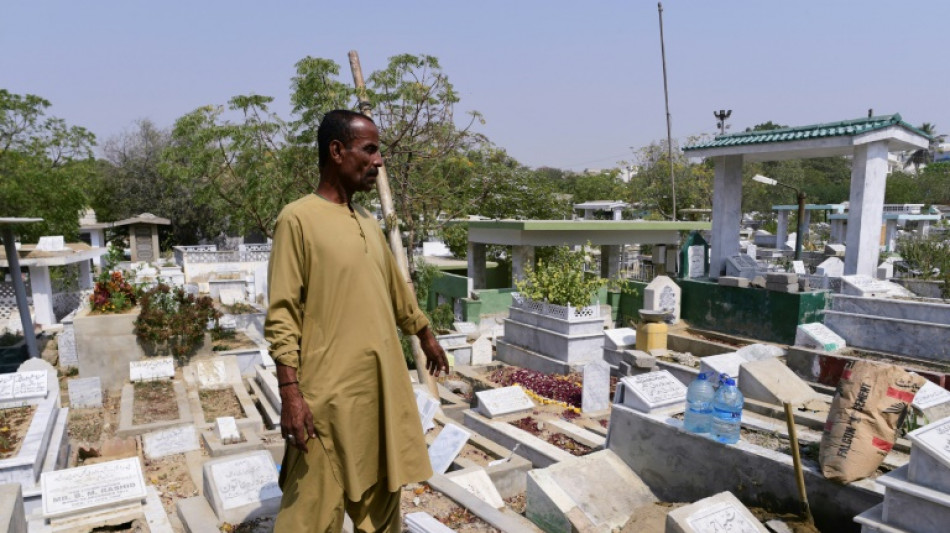
-
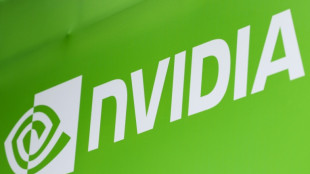 Stocks mixed after Nvidia record earnings
Stocks mixed after Nvidia record earnings
-
Actor Micheal Ward in UK court on rape charges

-
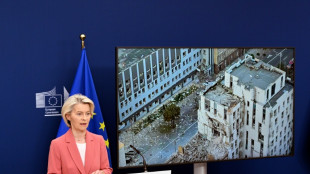 EU summons Russian envoy after mission damaged in Kyiv strike
EU summons Russian envoy after mission damaged in Kyiv strike
-
Deadly Russian attack kills 15 in Kyiv, raising fears for peace talks
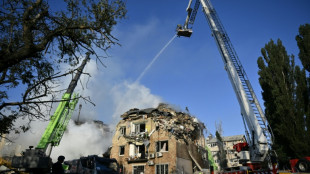
-
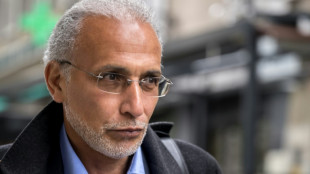 Swiss court rejects Islamic scholar Ramadan's rape conviction appeal
Swiss court rejects Islamic scholar Ramadan's rape conviction appeal
-
Russian attack kills 14 in Kyiv, including three children
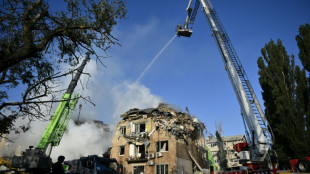
-
 Swiss economy set to slow due to US tariffs
Swiss economy set to slow due to US tariffs
-
Hong Kong media mogul Jimmy Lai verdict to come 'in good time': judge
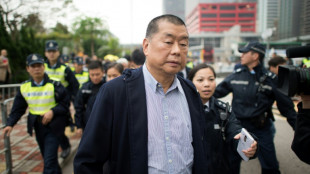
-
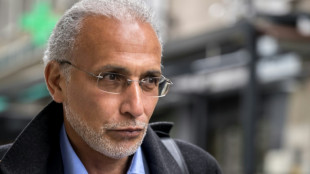 Swiss court rejects Tariq Ramadan rape conviction appeal
Swiss court rejects Tariq Ramadan rape conviction appeal
-
Asian markets mixed after Nvidia earnings
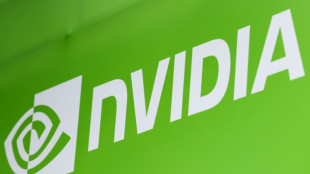
-
 Rising Australian golfer makes comeback after losing sight in left eye
Rising Australian golfer makes comeback after losing sight in left eye
-
Scandal facing sister of Argentina's president: 3 things to know

-
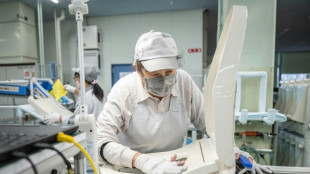 Need a pee? Japan has QR code for that
Need a pee? Japan has QR code for that
-
Five things to know about Guyana
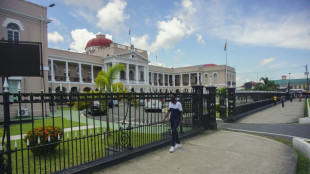
-
 Guyana, emerging oil superpower, elects new leaders
Guyana, emerging oil superpower, elects new leaders
-
Nigerian designer pushes 'Afro-lux' onto the global fashion scene
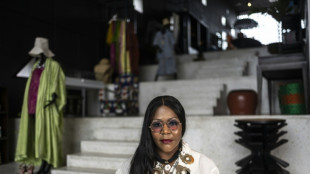
-
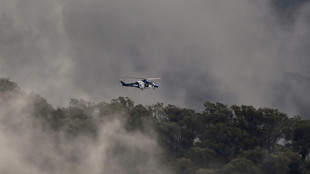 Gunman still at large after Australian police killings
Gunman still at large after Australian police killings
-
Norway, environmentalists back in court over oil field permits

-
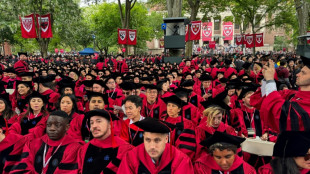 Trump moves to limit US stays of students, journalists
Trump moves to limit US stays of students, journalists
-
Attack and never give up: Inside Japan's deadly boxing scene

-
 Russia hits Kyiv with 'massive' deadly overnight strikes
Russia hits Kyiv with 'massive' deadly overnight strikes
-
Injury-hit Wallabies welcome back Alaalatoa for Argentina Tests
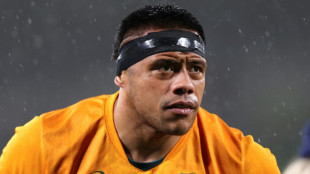
-
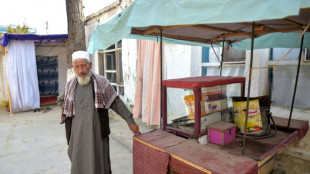 Long-awaited pension payments relief for Afghan retirees
Long-awaited pension payments relief for Afghan retirees
-
Chivu's Inter turning the page on Champions League humiliation

-
 Japan confident on wind power after Mitsubishi blow
Japan confident on wind power after Mitsubishi blow
-
Hamburg host derby rivals St Pauli in German top-flight reunion

-
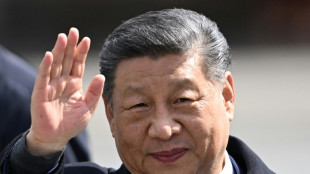 China to bolster non-Western alliances at summit, parade
China to bolster non-Western alliances at summit, parade
-
Climate-driven wildfires reversing pollution progress in N. America: study
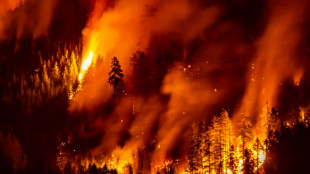
-
 Sabalenka eyes Fernandez revenge in US Open third round
Sabalenka eyes Fernandez revenge in US Open third round
-
White House fires US health agency head after she refused to quit
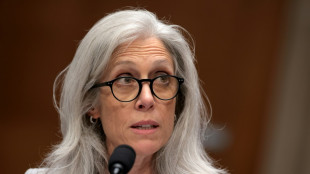
-
 Super Rugby to mark 30th anniversary with tweaks to finals format
Super Rugby to mark 30th anniversary with tweaks to finals format
-
Messi brace puts Miami into Leagues Cup final

-
 Can a giant seawall save Indonesia's disappearing coast?
Can a giant seawall save Indonesia's disappearing coast?
-
Motive probed for US shooting that killed two children, injured 17
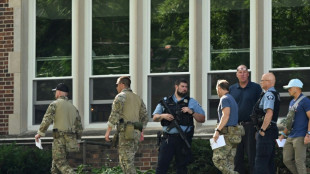
-
 Bisexual ex-Australian Rules player praised for 'courage and bravery'
Bisexual ex-Australian Rules player praised for 'courage and bravery'
-
South Korea to ban mobile phones in school classrooms

-
 Alcaraz banishes US Open demons to reach third round
Alcaraz banishes US Open demons to reach third round
-
Kipchoge feeling the pressure ahead of Sydney Marathon

-
 Clooney and Netflix team up for Venice festival spotlight
Clooney and Netflix team up for Venice festival spotlight
-
Trump stamps 'dictator chic' on Washington
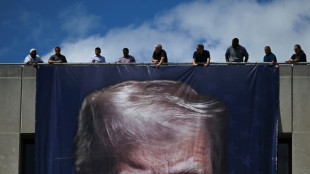
-
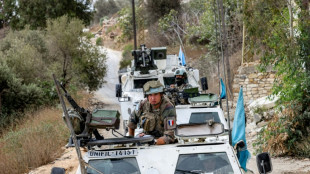 UN Security Council to decide fate of peacekeeper mandate in Lebanon
UN Security Council to decide fate of peacekeeper mandate in Lebanon
-
Alcaraz sprints into US Open third round as Djokovic advances
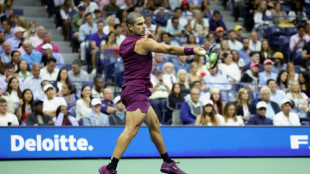
-
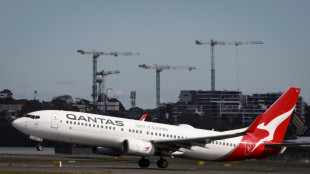 Qantas says profits up, strong travel demand ahead
Qantas says profits up, strong travel demand ahead
-
'Perfect storm': UK fishermen reel from octopus invasion
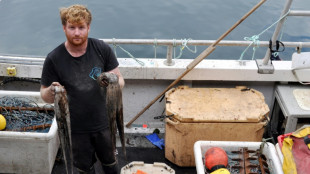
-
 Alcaraz crushes Bellucci to reach US Open third round
Alcaraz crushes Bellucci to reach US Open third round
-
Townsend reveals Ostapenko 'no class' jibe after US Open exit
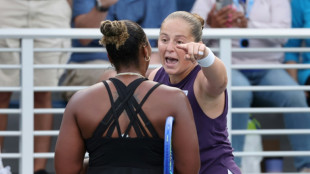
-
 Israel ups pressure on Gaza City as Trump talks post-war plan
Israel ups pressure on Gaza City as Trump talks post-war plan
-
NATO says all countries to finally hit 2-percent spending goal
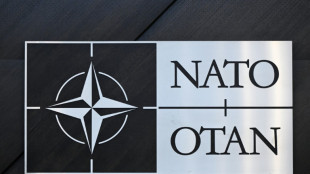
-
 Rangers humiliated, Benfica deny Mourinho's Fenerbahce Champions League place
Rangers humiliated, Benfica deny Mourinho's Fenerbahce Champions League place
-
AI giant Nvidia beats earnings expectations but shares fall


Grave injustice: Not even the dead rest easy in Pakistan megacity
In the teeming metropolis of Karachi, Pakistan's biggest city, graveyards are filling up and the dead are running out of space to rest.
But for the right price to the right person, a plot can be "found" for the body of a loved one by shady crews who demolish old graves to make room for the new.
In the coastal megacity -- a crush of 20 million people -- the Pakistan Employees Cooperative Housing Society (PECHS) cemetery has been officially full for five years.
The necropolis is choc-full. Tombs big and small are slotted like Tetris into every nook -- some pitted deep in the ground, others raised high on petal-strewn plinths.
Still, new tombs appear all the time, erected on smashed or scooped-out graves by men charging outsized fees.
AFP witnessed one team hacking at stonework and furtively carrying away baskets of dirt until they had carved out a fresh opening in the cramped earth.
"There's no space in the whole of Karachi -- none of the graveyards has space for fresh burials," said digger Khalil Ahmed.
"We have to destroy old graves if we want to create new ones."
The government burial fee in this district is 7,900 rupees ($44) but two locals reported paying 55,000 and 175,000 to lay a loved one to rest in the PECHS graveyard last year.
Ahmed said the fees are split between 40 men and teens who, when not working, spend their time lolling on day beds in the shade.
- Gravedigger mafia -
Ahmed and his colleagues are part of what politicians and the media call the "gravedigger mafia" -- a typically flamboyant term in the parlance of Pakistan social affairs.
Officials rail against the "milk mafia" watering their wares, the "sugar mafia" driving up prices and the "land mafia" annexing space.
But the freelance gravediggers are profiting on Pakistan's changing population dynamic.
Pakistan is the world's fifth most-populous nation with 220 million citizens and more than four million added every year.
As the population grows, so does the migration of people from the countryside to the cities, looking for work to escape rural poverty.
Muhammad Aslam has witnessed the gravedigger mafia flourish as Karachi's population boomed.
The 72-year-old said the PECHS graveyard was a "deserted place" when he moved next door in 1953 but "space shrank fast" as burial prices rose for 14 family members interred over the years.
In 1967 Aslam's family paid 50 rupees to bury his grandfather but a relative buried at the hands of the mafia in 2020 cost 33,000.
"The basic issue is that infrastructure is insufficient," said Ali Hassan Sajid, a spokesman for the Karachi Metropolitan Corporation (KMC).
The KMC manages 39 of around 250 graveyards citywide -- including PECHS Six are closed, while the rest are "almost full".
"In some parts of the city the infrastructure is the same that existed when Pakistan was founded," Sajid admitted.
He openly acknowledged the existence of gravedigger mafias conducting burials at closed sites -- and claimed efforts to evict them are underway.
The gangs are also reported to be flourishing in the cities of Rawalpindi, Peshawar and Lahore.
- A missing memorial -
Fault for the gravedigger mafia -- and even whether they represent a problem -- depends on who you ask.
Sajid said families eager to bury relatives alongside previous generations in full yards offer high prices that "lure the gravedigger so he falls prey to his greed".
Ahmed the gravedigger says he provides an essential service in a city unable to administer itself, scratching out a meagre living in return.
And while some locals view the practice as part of the faulty fabric of life in a teeming city, for others it is a source of angst.
Muhammad Abdullah Saif's father was buried in the PECHS graveyard decades ago.
Today the faded green tomb is surrounded by empty sacks of cement and the shattered cusps of tombstones --the mafias generally pick untended graves for demolition.
"We have to come and visit regularly or the grave will be knocked down," said the 32-year-old.
Muzammil Asif, meanwhile, must clamber over a carpet of ankle-twisting hazards to reach the grave of his teenage sister, buried here last summer.
"Graves are desecrated when one walks over them," the 21-year-old complains.
And in the nearby Korangi graveyard Muhammad Munir has experienced the saddest loss.
Every year he comes to offer prayers in the cemetry where his father was buried -- an amphitheatre of tumbledown tombstones fringed by ragged flags.
But the grave is long gone, demolished more than 20 years ago and replaced by another. That replacement is gone too, swapped out for a new one.
Now he's unsure of exactly where his father lies in rest.
"It's painful," he said. "The grave was the last sign of him."
C.Kovalenko--BTB
